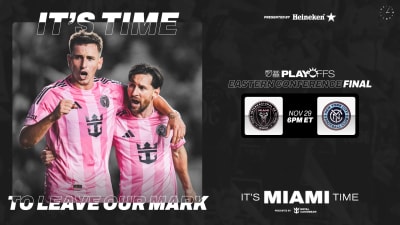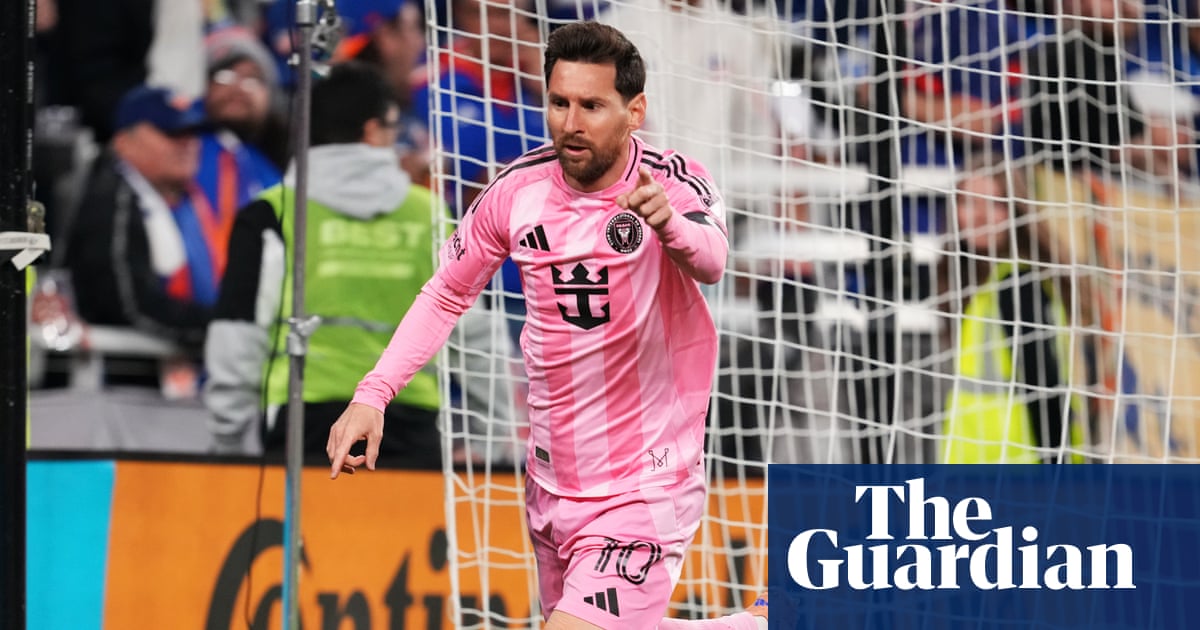The Inevitable Coronation
Let’s dispense with the pleasantries and the breathless, fairytale narratives being spun by the league’s marketing department and its broadcast partners. The advancement of Inter Miami to the Eastern Conference Final is not a sporting miracle, nor is it the culmination of a plucky underdog story. It is the logical, mathematically predictable outcome of a strategic corporate acquisition, a process as romantic as a quarterly earnings report and as surprising as the sun rising in the east. The 4-0 demolition of FC Cincinnati wasn’t a game; it was a demonstration of overwhelming financial and gravitational force, a force for which a league like Major League Soccer has absolutely no structural or competitive antibodies. This isn’t a story. It’s a conclusion.
Pre-Messi Miami: A Placeholder in Paradise
Before the arrival of the designated messiah, what was Inter Miami? It was a concept. A branding exercise with a nice color scheme, a famous owner, and a perpetually mediocre on-field product that served as little more than a placeholder, a vessel waiting to be filled with the purpose for which it was always intended. The club’s history is a footnote, a brief and unremarkable prologue to the main event, characterized by disjointed rosters, coaching carousels, and the kind of existential aimlessness that plagues expansion franchises built on aesthetics rather than identity. They existed not to win trophies, but to simply exist long enough for the real project to begin, a project conceived in boardrooms far from any soccer pitch, involving executives from Apple, Adidas, and MLS headquarters who saw the South Florida market not as a home for a team, but as a launchpad for a global content strategy. The stadium was built, the brand was established, and the team treaded water. Waiting.
The Arrival: A Hostile Takeover, Not a Signing
Lionel Messi’s signing was not a personnel decision in the traditional sense; it was the activation of the club’s and the league’s true business model. He, along with his former Barcelona lieutenants Sergio Busquets and Jordi Alba, were not brought in to merely elevate a struggling team. They were installed to detonate the league’s carefully constructed, if deeply flawed, illusion of parity. The Designated Player rule, once a novel mechanism to attract aging stars without bankrupting owners, has been weaponized by Miami to create a tactical and technical singularity that the rest of the league, built on a foundation of collective bargaining agreements and salary caps, simply cannot compute. This is not competition. It is an invasion. The historic performance against Cincinnati, the record-setting goal contributions—these are not measures of Messi’s enduring genius against worthy adversaries. They are the statistical artifacts of a world-class predator being introduced into a protected nature preserve. The defenders he ghosted past, the spaces he exploited; they were simply not equipped for this level of predatory movement and vision. It was a mismatch on a cellular level. Inevitable.
The MLS Ecosystem: A System Shocked into Irrelevance
For years, the great selling point of Major League Soccer was its unpredictability, its chaotic parity where any team, on any given day, could beat another. That era is over. It was officially pronounced dead in a 4-0 rout in Ohio. The arrival of the ex-Barcelona triumvirate has exposed the league’s core philosophy as a charming but ultimately naive fantasy. What is the point of scouting departments, of developmental academies, of clever salary cap management, when one ownership group can simply bypass the entire system by leveraging global brands to subsidize the creation of a super-team? The rest of the league is now playing a different sport, operating under a different set of economic and competitive realities. They are props in the Lionel Messi North American Farewell Tour, presented by Apple TV+. Their role is to provide the backdrop for the weekly highlight reel, to be the Washington Generals to Miami’s Harlem Globetrotters. A grim reality.
The Devaluation of Competition
The argument that a rising tide lifts all boats is a convenient fiction in this scenario. This is not a tide; it is a tsunami that swamps every other vessel in the harbor. While ticket sales and subscription numbers may see a short-term spike, the long-term integrity of the competition is being irrevocably compromised. What does it say to the fans in Cincinnati, in Philadelphia, in Nashville, who have invested years of emotional energy into their clubs, only to see them rendered obsolete overnight by a singular, market-driven anomaly? It tells them that their teams’ efforts are ultimately futile. The championship is no longer a prize to be contested by twenty-nine teams; it is an asset to be delivered to one. This reduces the entire regular season and the early playoff rounds to a prolonged, ceremonial preamble to the inevitable Miami coronation. The league has traded its soul for a celebrity, and while the initial returns are intoxicating, the hangover will be a generation of alienated fans who realize they were sold a rigged game. It is a dangerous gambit.
The Eastern Conference Final: Another Foregone Conclusion
And so, Inter Miami will host New York City FC, a club that represents the old model of MLS ambition—a cog in a global football machine, with a decent roster and a competent system. On paper, they present a more organized challenge than Cincinnati. But it doesn’t matter. It is irrelevant. We are no longer operating in the realm of tactical matchups or form guides. We are witnessing a force of nature, or rather, a force of market economics, play out its destiny. Can NYCFC’s backline, accustomed to the rhythm and pace of MLS attackers, realistically cope with the telepathic interplay of Messi, Busquets, and Alba? Can their midfield press effectively against a player who has solved the most sophisticated defensive systems in the history of world football? The question is not *if* Miami will win, but by what margin, and what new ‘records’ will be set in the process. The script has already been written. The outcome is preordained. Everyone else is just an extra on the set.
The Endgame: A Gilded Cage
This is the future MLS chose. A future where it ceases to be a competitive domestic league in the American tradition and instead becomes a satellite, a retirement tour stop masquerading as a serious competition, not unlike the current state of affairs in the Saudi Pro League, albeit with better branding and a more palatable human rights record. The league craved global relevance and validation above all else, and in Messi, it found its shortcut. But shortcuts have a cost. The cost is authenticity. The cost is the belief that any team can win. The cost is transforming your league from a sport into a spectacle, a weekly exhibition centered around one man and his supporting cast. It is a spectacular, profitable, and ultimately hollow victory for the forces of commerce over the spirit of competition. The celebrations in Miami are not the celebrations of a sporting triumph, but of a successful business venture reaching its projected Q4 targets. Nothing more.


